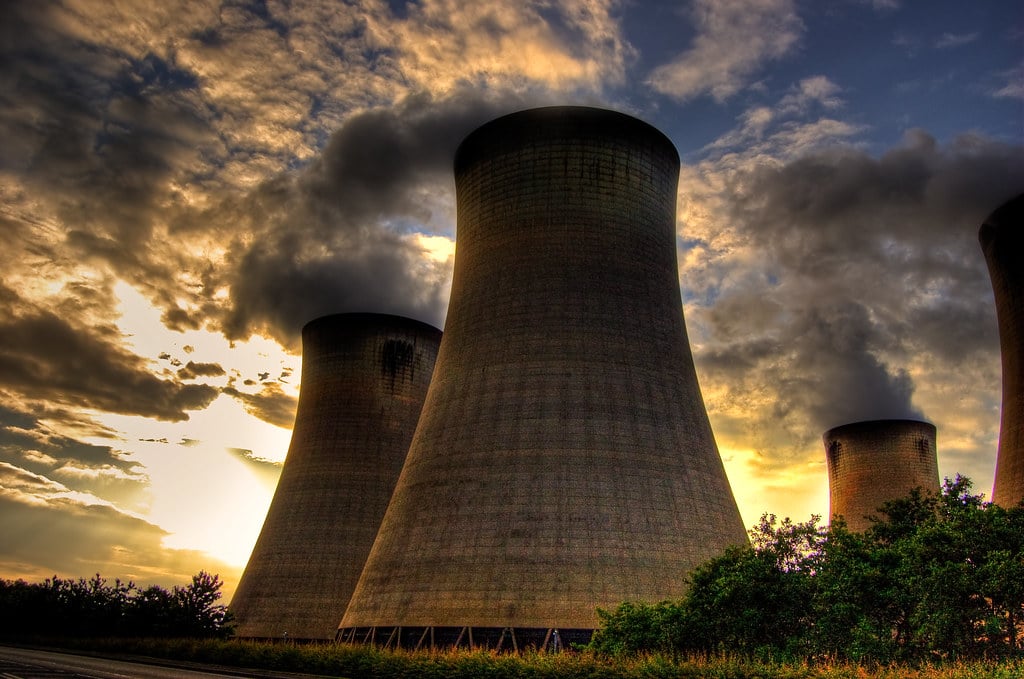The current supply chain of biomass giant Drax “makes the impacts of climate change worse”, a new study has claimed.
Analysis by US environmental advocacy group, the National Resources Defense Council (NRDC), studied the emissions from wood pellets transported from pine plantations in the southeastern United States to be used in a bioenergy, carbon capture and storage (BECCS) operation by Drax in Yorkshire.
Currently bioenergy is classified as a renewable energy source by the UK government, under the premise that it uses trees which can be replanted to recapture carbon and is therefore considered carbon neutral. Advocates of BECCS say the technology can even make the process “carbon negative”, by removing the carbon emissions from burning biomass and storing them underground.
Drax, which has piloted the BECCS technology since 2018, is hoping to deliver its first fully operational plant by 2027 as part of plans to become a “carbon negative company” by 2030 – removing more carbon than it produces.
However Sasha Stashwick, senior advocate at NRDC and campaigner with Cut Carbon Not Forests, said Drax’s claims of becoming “carbon negative” were “wildly exaggerated”.
“Drax’s biomass supply chain is so highly emissive, that with or without CCS (carbon capture and storage), it makes climate change worse,” she said. “This report makes clear that any UK government climate plan that relies on BECCS at Drax is extremely high-risk.
“When you’re in a hole, you stop digging – and the government must stop ploughing money into dirty biomass subsidies. Instead, these funds should be redirected to wind and solar energy, which is not only low-cost and low-risk, but actually helps fight the climate crisis.”
‘Uncapturable’
The new report notes that BECCS is explicitly included in the Intergovernmental Panel on Climate Change (IPCC)’s mitigation pathways to stay “well below” 2C of global warming since the pre-industrial era, but claims this does not track the full carbon footprint of bioenergy or the process of carbon capture itself.
Biomass involves a long energy-intensive process of cutting down and transporting the trees, drying the wood, converting them into pellets, and then transporting them before they can be burned in the power plant, the report says.
The report’s authors also claim that old trees store more carbon than young growth, meaning that harvesting woods leads to “foregone sequestration”. Furthermore Carbon Capture and Storage (CCS) technology requires power to operate, and cannot capture all emissions at the source, the analysis claims.
Tracking the journey of loblolly pine plantations in the US was “representative of the most common supply chain for biomass to electricity”, the authors said. Drax sources around 60 percent of its wood from the southeastern states, and operates three company-owned pellet mills in Louisiana and Mississippi.
According to the analysis, the “uncapturable” emissions on this biomass supply chain equals 558kg of carbon dioxide equivalent, which rise further when factoring in carbon capture and storage to 779kg/CO2e. Drax has disputed these figures.
Subsidies
The new report comes less than a week after climate think tank Ember released research claiming Drax’s plant in North Yorkshire is among the biggest sources of carbon dioxide and PM10 air pollution of all EU power stations, and the greatest single source of CO2 in the UK.
Drax, which produces around six percent of the UK’s electricity daily, emitted a total of 19.4 million tonnes of CO2 equivalent in 2020, of which 13.2 million tonnes were from burning biomass. In the same year, the company was estimated to have received £832 million in government renewables subsidies for its biomass energy.
These subsidies are set to end in 2027. The BECCS plant due to be in place that year has been estimated to cost £31.7 billion in subsidy, according to Ember, though Drax is yet to reveal the amount it is requesting from the government.
Responding to the latest analysis, Phil MacDonald, chief operating officer of Ember, said the report was “exactly the kind of research that the UK government should be doing before it makes a decision on funding BECCS”.
“Before we know whether BECCS can work, we have to understand the emissions not just at the power station, but all the way back through the global supply chain and in the forest where the wood is harvested,” he said.
A Drax spokesperson disputed the report’s findings, saying it “relies on a long list of false assumptions, is incorrect and ill-informed, and is not aligned with latest climate science or policies on bioenergy”.
They said the company’s supply chain emissions were “five times lower than NRDC’s ‘estimates’”, and that “sustainable biomass delivers carbon savings of 85 percent compared to coal”, referencing its conversion of power stations from use of coal to predominantly biomass.
The spokesperson added that the report’s assumption that forests are harvested only to provide wood for biomass was “completely incorrect”, and that the creation of BECCS plants would deliver “tens of thousands of jobs across the North”.
Subscribe to our newsletter
Stay up to date with DeSmog news and alerts







